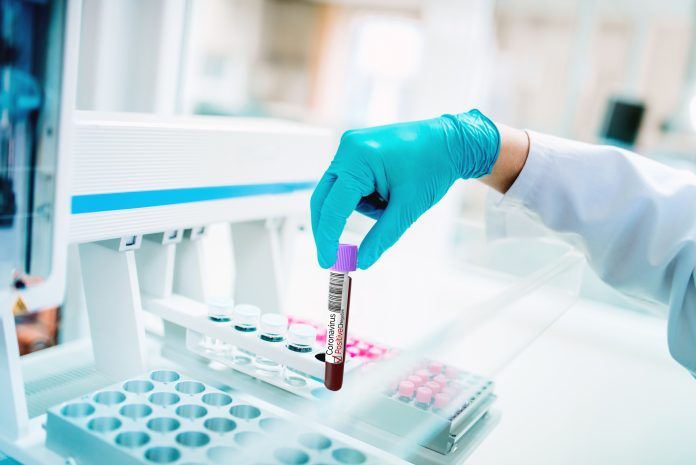Mike Fischer CBE, Founder of the COVID-19 Volunteer Testing Network, details the work being done to keep healthcare workers safe on the frontline and provide regular screening for COVID-19
The COVID-19 Volunteer Testing Network is helping increase the availability of coronavirus antigen testing for workers in GP surgeries, care homes and community care providers. This testing is vital to help keep key workers safe and to allow health provision to continue through this pandemic. Easy tests with same-day results are possible even if staff are asymptomatic.
Health workers are crucial during normal times, but their work is especially important during a public health crisis like we are seeing today. They also face a heightened risk of coming into contact with potentially infected people. Health and care workers are also likely to be working with high numbers of vulnerable people, to whom they could transmit the disease. Many carriers of the virus show no symptoms at all, yet can still spread infection. Even those who do get symptoms are often still shedding the virus before they realise they have caught it. This puts their colleagues, and the public, at risk of infection.
Free and regular screening of health and social care workers for COVID-19 is vital to ensure that these risks are mitigated and that health services can continue to operate. That’s why I set up the COVID-19 Volunteer Testing Network, and have donated £1 million to help labs meet the cost of running regular tests.
Testing local GP Practices
I started by converting Systems Biology Laboratory, my own private research company and the network’s founding lab, using our pre-existing RT PCR equipment and expertise to start testing local GP practices. It took us a week to get up and running, and soon we were running weekly tests of staff across 18 local GP surgeries.
We realised that this was a model that could be scaled up quickly and be replicated across the country. We quickly put together a team of volunteers, which became the COVID-19 Volunteer Testing Network. We work with private labs across the country, helping them convert their facilities and use their experience to start testing health workers in their area.
We help these labs overcome barriers to becoming testing labs, such as providing them with necessary consumables such as reagents and swabs. We can organise the procurement of such goods, and contribute funds towards purchasing them. We connect testing labs to GP surgeries or care workers in their area, so that labs can drop off test kits then collect them again with ease. At present, we have six labs currently testing, located across the UK. There are 26 labs in the pipeline which we anticipate will be able to start testing in the next few weeks.
Because the network is decentralised and localised, health workers can easily get repeatedly tested with same-day results, even if they are asymptomatic. There have already been a number of success stories where this approach has been instrumental in helping GPs and care providers keep operating.
Pangbourne Surgery
For example, Pangbourne Surgery is a GP practice with 13,000 patients near Reading which almost had to shut down due to a number of case of COVID-19 across their staff. Many were having to self-isolate, which made it difficult for the surgery to keep operating. SBL were able to help with confirming and monitoring the state of the virus. The process happened very quickly: we tested 21 individuals over two days, delivering results within four hours. Most of the doctors did have COVID-19, and the information our testing revealed helped the surgery’s staff manage their team more efficiently, protecting other staff members and patients.
Davis French & Associates
The COVID-19 Volunteer Testing Network’s labs have also had successes in the care sector, as well as GPs. For example, Davis French & Associates are a lab in Yorkshire that recently joined the network. They have been testing in four GP surgeries, a care home and a community care provider. This provider was concerned that they may have been contributing to the spread of the virus among its clients, after several were hospitalised. The lab took a total of 20 swabs from the provider’s staff, and returned eight of them positive. This was especially valuable information, since none of the staff had been showing symptoms when they were tested. Some staff then developed symptoms, but had previously been transmitting the virus, unaware that they were doing so.
Our network can help labs like these to expand testing to healthcare workers across the country.











